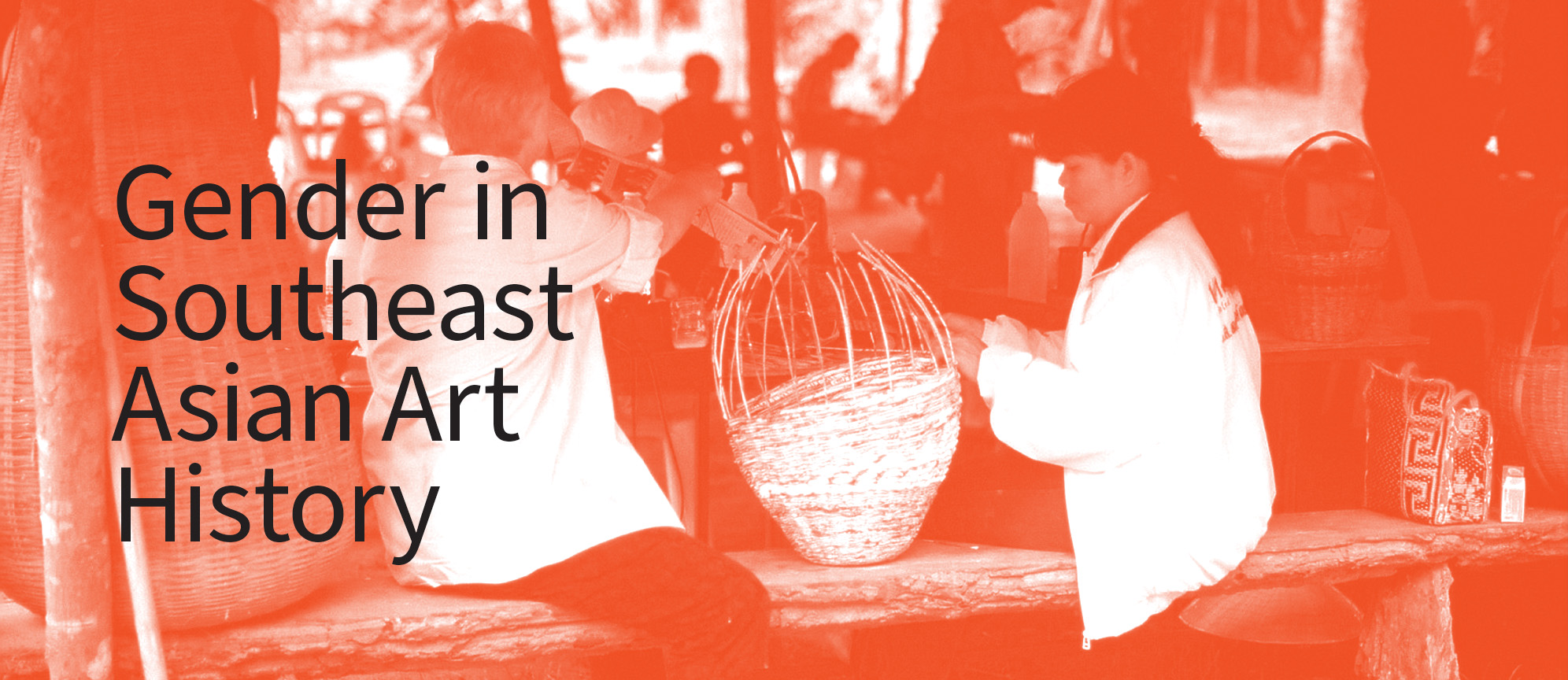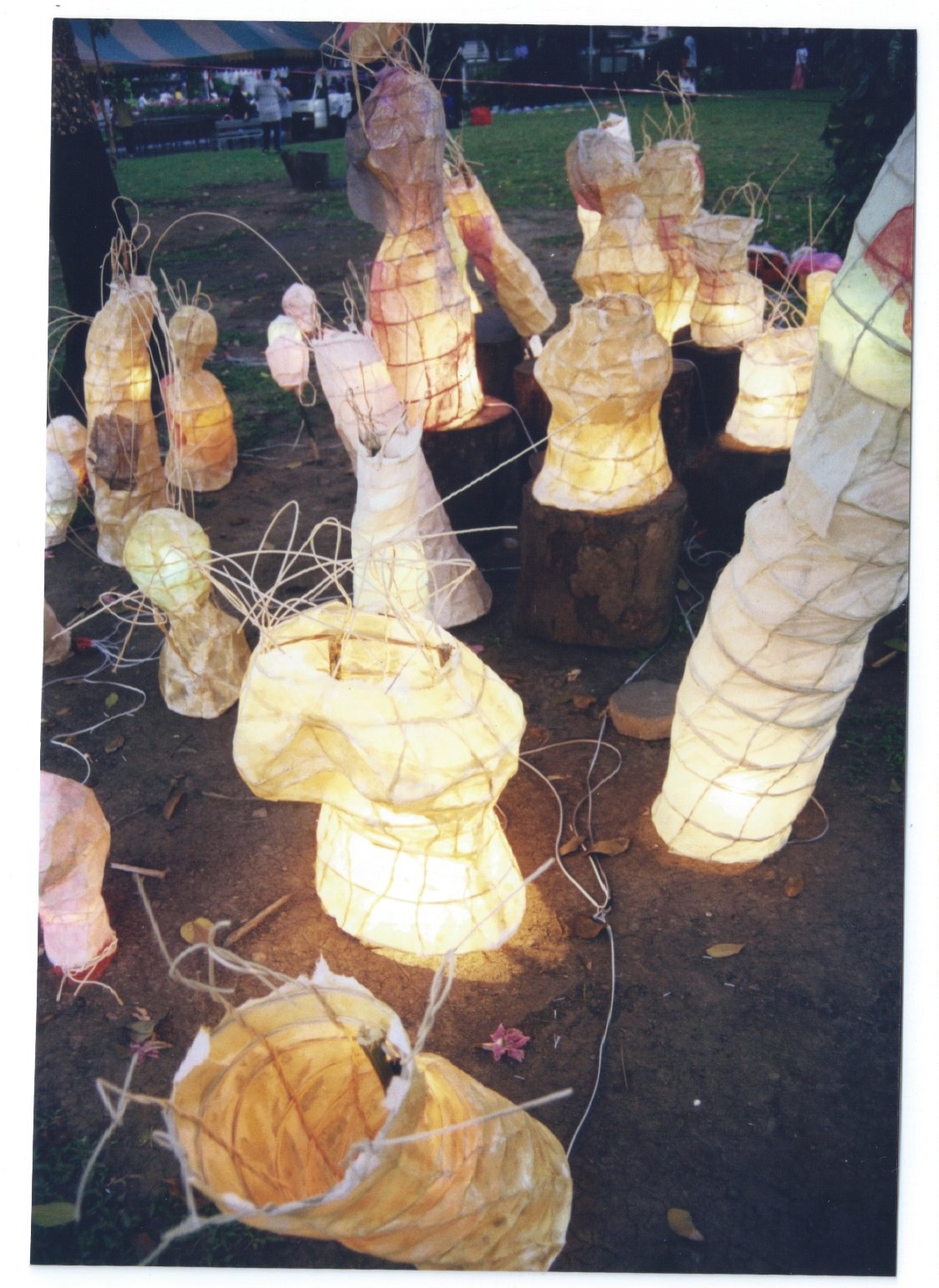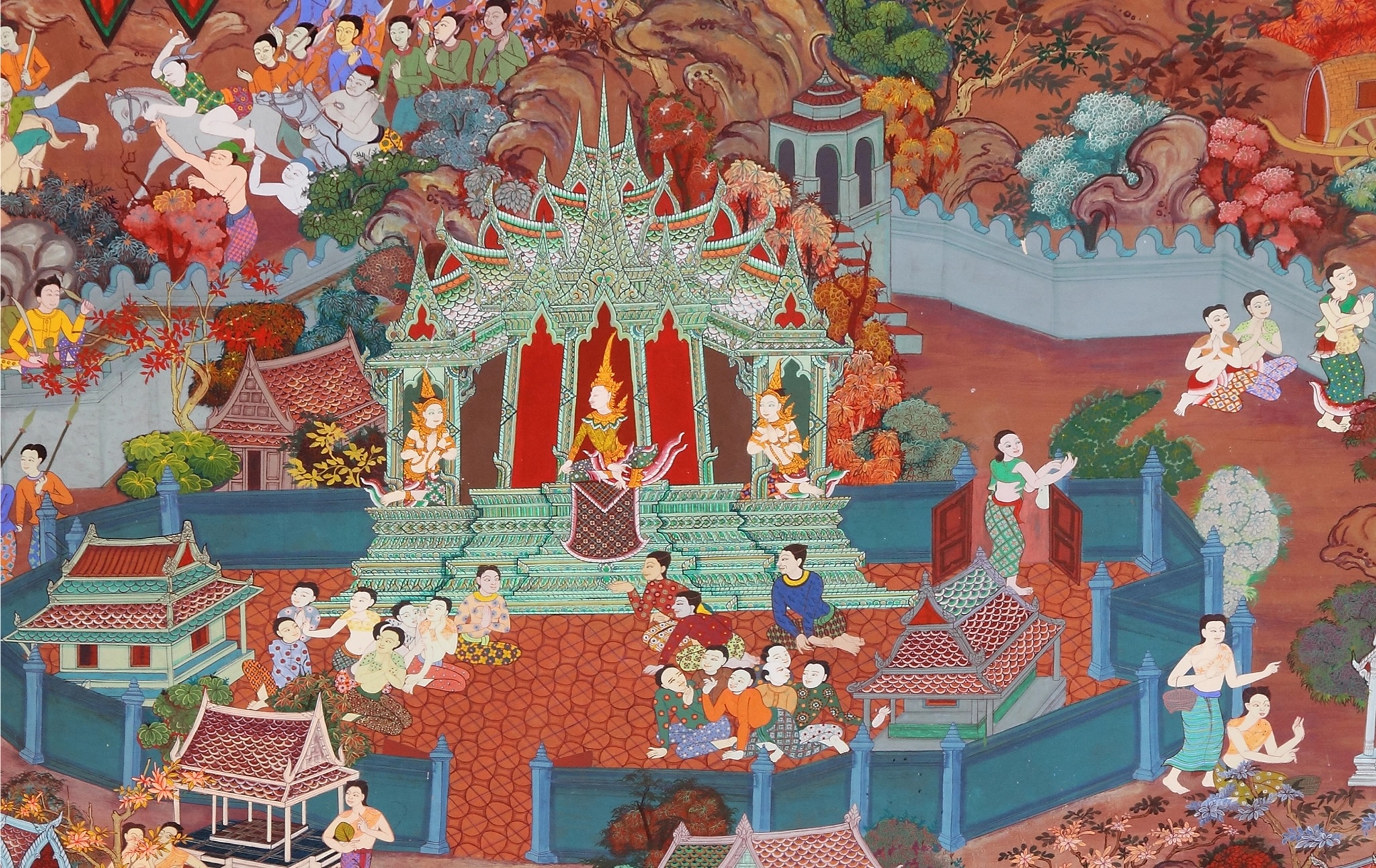Gender in Southeast Asian Art Histories II: Art, Digitality and Canon-Making?
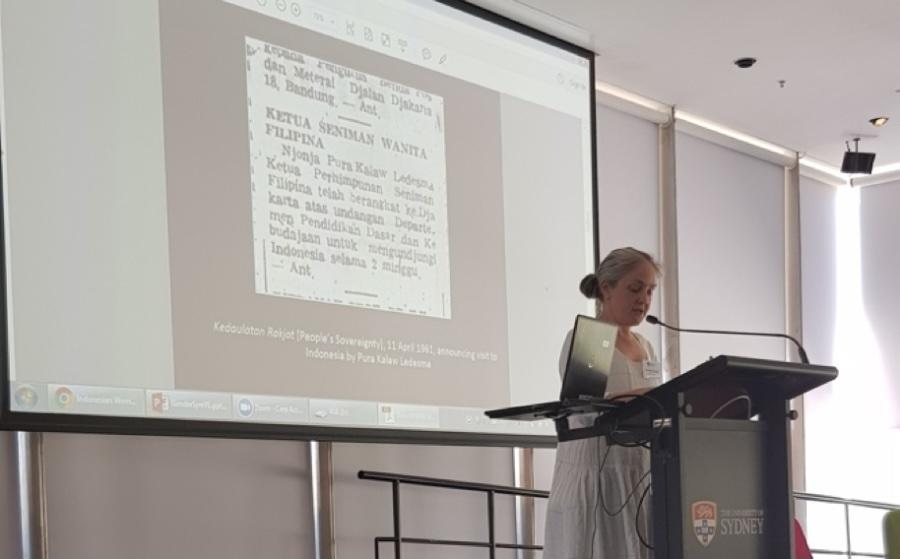
A symposium on new research on gender and art in Southeast Asia.
Following the highly successful Gender in Southeast Asian Art Histories 2017 event, the organisers have put together yet another ambitious two-part, multi-platformed project. This time, jointly supported by the University of Sydney (Power Institute, Faculty of Arts and Social Sciences and the School of Letters, Arts and Media) and Chulalongkorn University (CommDe), the Gender in Southeast Asian Art Histories 2019 project successfully facilitated a second gathering and intellectual exchange during which local and international scholars, together with artists and members of the art community, met in Sydney and Bangkok respectively.
A key focus of both events in Bangkok and Sydney was the histories of Womanifesto, a significant but understudied feminist artistic residency and exhibition project that has been held biannually in various locations in Thailand since 1995, and later on online platforms. Gender in Southeast Asian Art Histories included an inaugural exhibition of the Womanifesto archives which were generative sites for many discussions. The exhibition made materials publicly available for the first time, including photographs, videos, artworks, documents, publications and other ephemera related to Womanifesto.
Alongside the exhibition, both events involved international symposia featuring speakers from a range of disciplines, based in universities as well as art institutions in Australia, Southeast Asia and beyond. The first symposium in Bangkok was thematically centred around the issue of canon-making, and was convened in partnership with Dr Juthamas Tangsantikul (CommDe) in April. Entitled Art, Design and Canon-Making?, invited speakers included Patrick Flores (University of the Philippines) and May Adadol Ingawanij (University of Westminster), who shared their research in a series of workshops and lectures on issues of women’s invisible labour and ‘canonisation’, together with founding members and participants of Womanifesto. Professional practitioners from the Thai design scene also shared their perspectives in a roundtable convened by Dr Juthamas, and a number of undergraduate and postgraduate Thai students from Chulalongkorn also attended.
This was closely followed by a second symposium, entitled Art, Digitality and Canon-Making? held in Sydney on 18 October, which continued conversations began at Chulalongkorn University. With the aim of exploring the impact of digitality on gender-related discourses and artistic practices in the context of Southeast Asia, scholars presented innovative and transdisciplinary research on methodological and other problems posed by technologies and the “digital humanities,” and discussed the potential of digital tools and methodologies in academic, curatorial, and other forms of research. Presenters did not shy away from difficult issues, striving to present new research that interrogated past frameworks with the aim of rethinking approaches in the writing of feminist, transfeminist, LGBTQIA+ and regional art histories.
The full-day symposium concluded with a keynote lecture by Flaudette May Datuin (University of the Philippines), titled The Wind in the Trees: From Tradisexion to Womanifesto. Speaking anecdotally and self-reflectively, Datuin re-examined her past research—as well as her practices of teaching, writing and curating—and the relationships she has built over the years to consider the various problematics around women’s labour. In so doing, Datuin offered an innovative approach involving a process of ‘reinhabitation’ and ‘against interpretation’ so as to foreground the significance of talking to each other across generations, geographies and communities. Datuin also made manifest the inescapable intersections of feminist agendas and the challenges posed by the climate emergency.
The following day, Datuin chaired an animated roundtable discussion on Womanifesto at the opening of the archive exhibition, hosted by The Cross Art Projects. The exhibition, titled Archiving Womanifesto: An international art exchange (1990s-Present) and curated by Varsha Nair, Phaptawan Suwannakudt and Nitaya Ueareeworakul, restaged elements of the Womanifesto archive first shown in Bangkok. Importantly, the exhibition foregrounded the voices of several of the artists and organisers involved in this ongoing but often overlooked international women’s art network. The exhibition was opened by Rachel Kent (Chief Curator, Museum of Contemporary Art Australia), who remarked on the political challenge that Womanifesto’s activities brought into focus. Kent’s remarks were followed by a curators’ talk by Phaptawan Suwannakudt and Nitaya Ueareeworakul, who guided visitors through the display of archival materials, while also sharing reflections on their own works within the exhibition. This was subsequently followed by a closing event on 16 November with a talk by Varsha Nair, and a public forum, Coming together: Collective actions and future feminist archives, moderated by Catriona Moore (University of Sydney). The forum considered how the Womanifesto archives have brought to the fore the material memories of participating women artists from around the world, including Australia, and pondered the future of these archives and other feminist-driven archival projects in Australia. Again, these questions concerned the intersection of feminist politics and digital technologies.
Both events, in Bangkok and in Sydney, have together fostered important conversations and discussions around the histories of ‘women artists’, issues of gender and methodologies of art writing, in relation to digitality and canonicity. A key aim of the workshops and seminars, as well as the accompanying exhibitions, was to gather senior international scholars alongside a new generation of early career researchers, so as to bring together different generational perspectives and facilitate a collaborative, cross-institutional and international research cohort. One hope of the organisers is that the exchanges made at these gatherings will help to strengthen the foundation for sustainable, ongoing scholarly inquiry in this field. As such, many activities in the program have been developed with the aim of including and providing opportunities for higher degree research students (from Chulalongkorn University, University of Sydney and LASALLE College of the Arts in Singapore). One example is the support given to University of Sydney Honours student, Caitlyn Coman-Sargent, who conducted promising new research on Womanifesto and feminist approaches. Coman-Sargent was supported to attend and participate in the workshops, seminars and roundtable discussions held in Bangkok and Sydney, which proved an invaluable experience that she critically reflected on in her successful Honours thesis. Students from the Masters in Curatorship and Museum Studies course and the Art History department were also involved in the exhibition-making process as interns and volunteers, which provided an enriching and rare opportunity to engage with Southeast Asian source materials and artists.
One particularly important, and long-lasting outcome of the exhibition and symposia was a digitisation project led by Asia Art Archive (Hong Kong) to further facilitate the accessibility of these materials internationally in the future. The organisers are presently developing a publication on Womanifesto in conjunction with an online platform for the Gender in Southeast Asian Art Histories Network, to launch in 2020.
By Yvonne Low, Catriona Moore, Roger Nelson, and Clare Veal
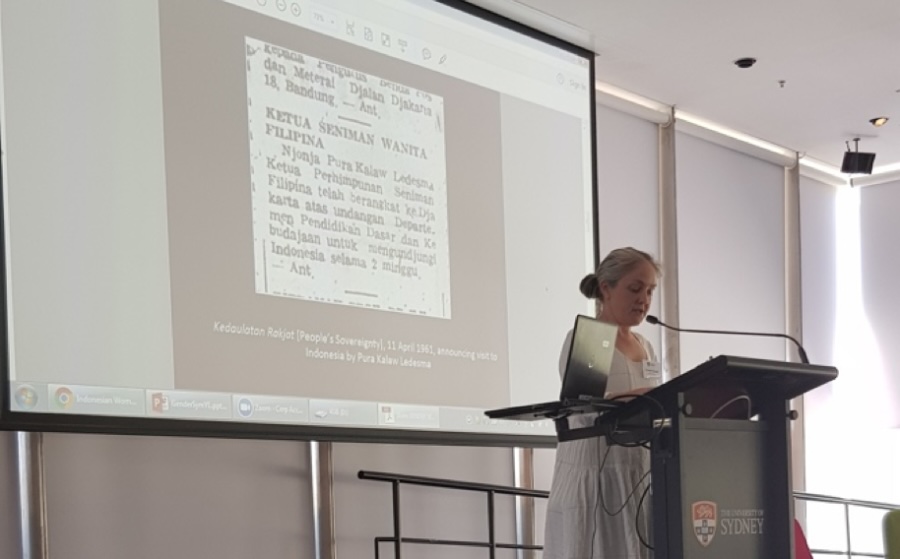
Dr Siobhan Campbell presenting a paper, “Gender and Indonesian Art on the International Stage: (Re)viewing Indonesian Art histories through digital repositories”, at the Art, Digitality and Canon-Making? symposium, 18 October 2019, University of Sydney. Photo by: Yvonne Low
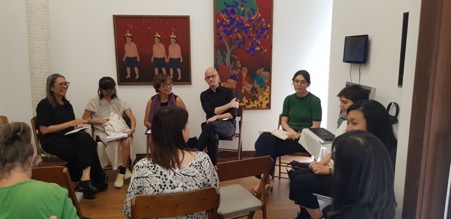
Roundtable discussion at the opening event of Archiving Womanifesto: An international Art Exchange (1990s-Present), Photo by: Yvonne Low
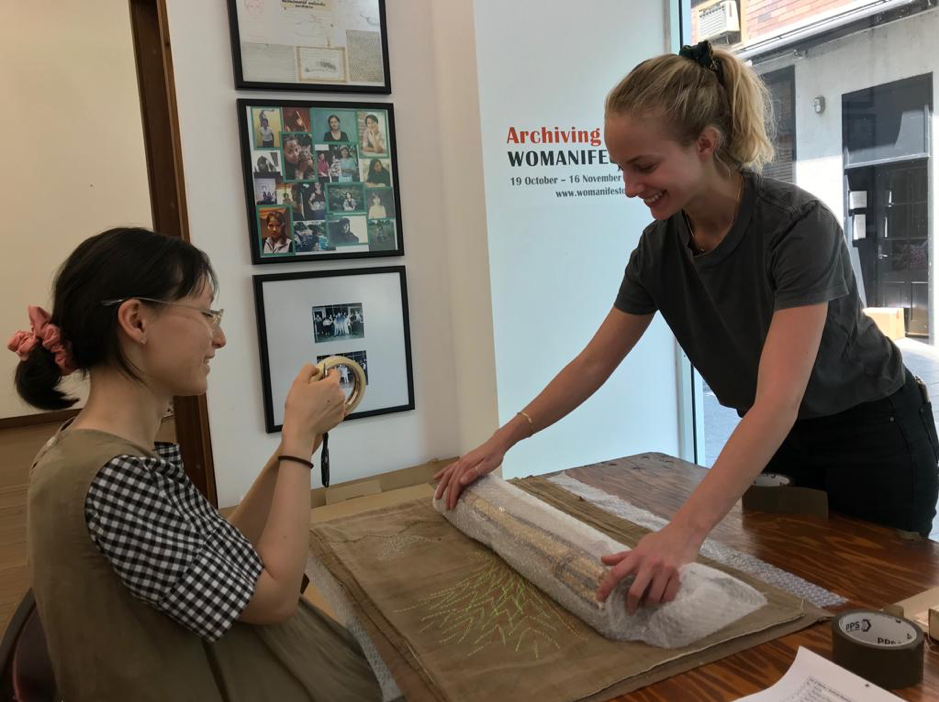
Volunteers, Emma Harbridge and Claudia Thomson, assisting the curators with the installation, and de-installation of the exhibition. Photo by: Varsha Nair
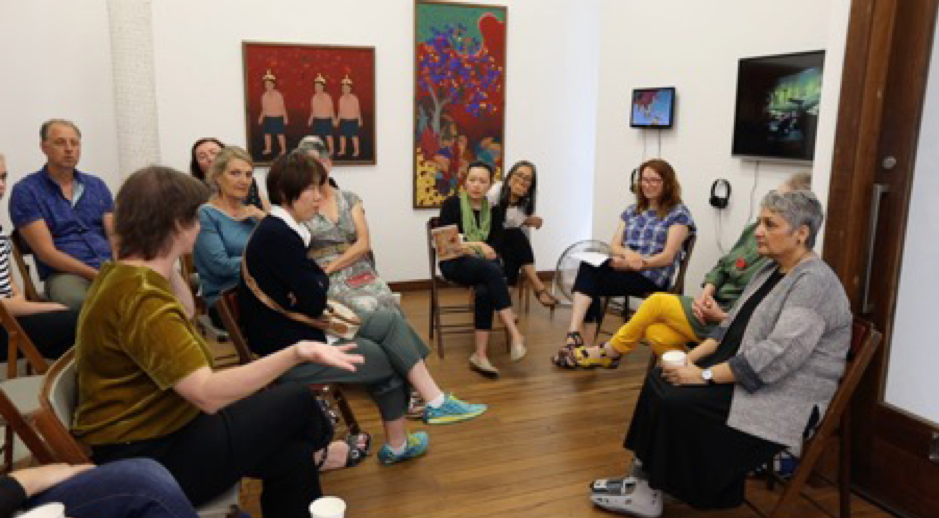
Forum discussion at the closing event of Archiving Womanifesto: An international Art Exchange (1990s-Present), Photo by: Yvonne Low

